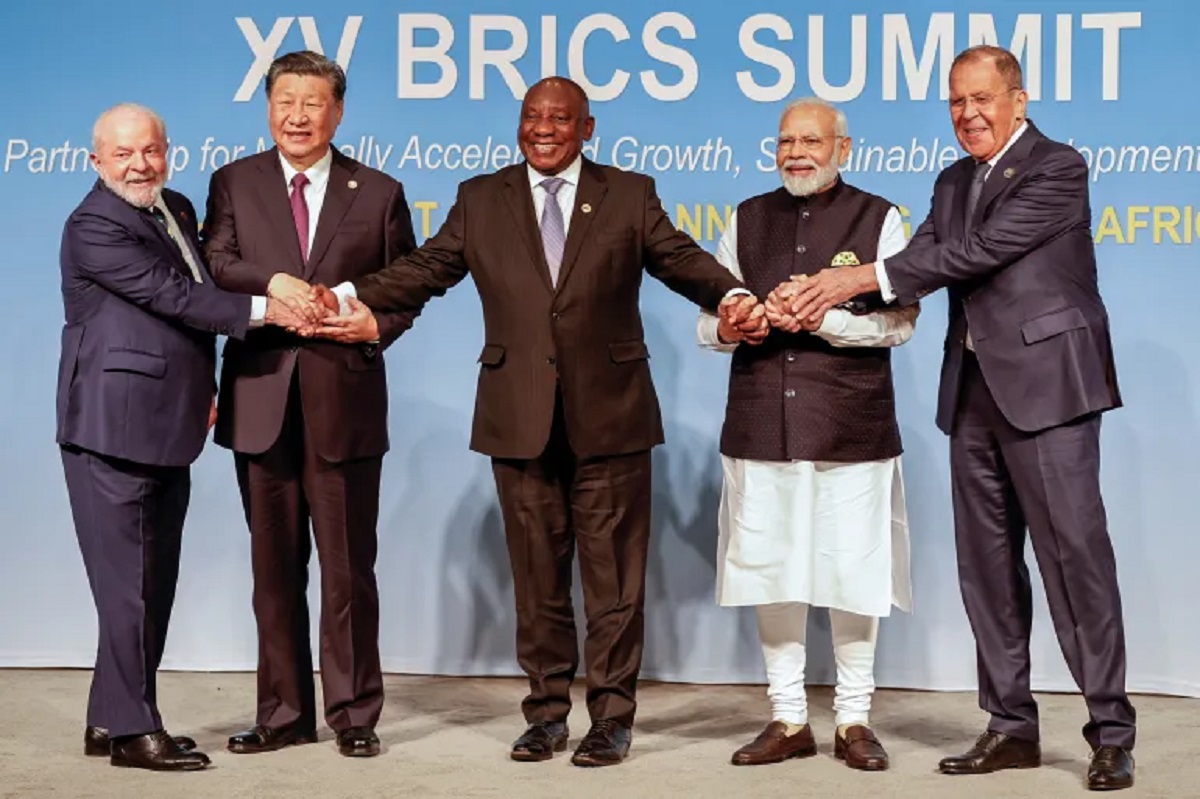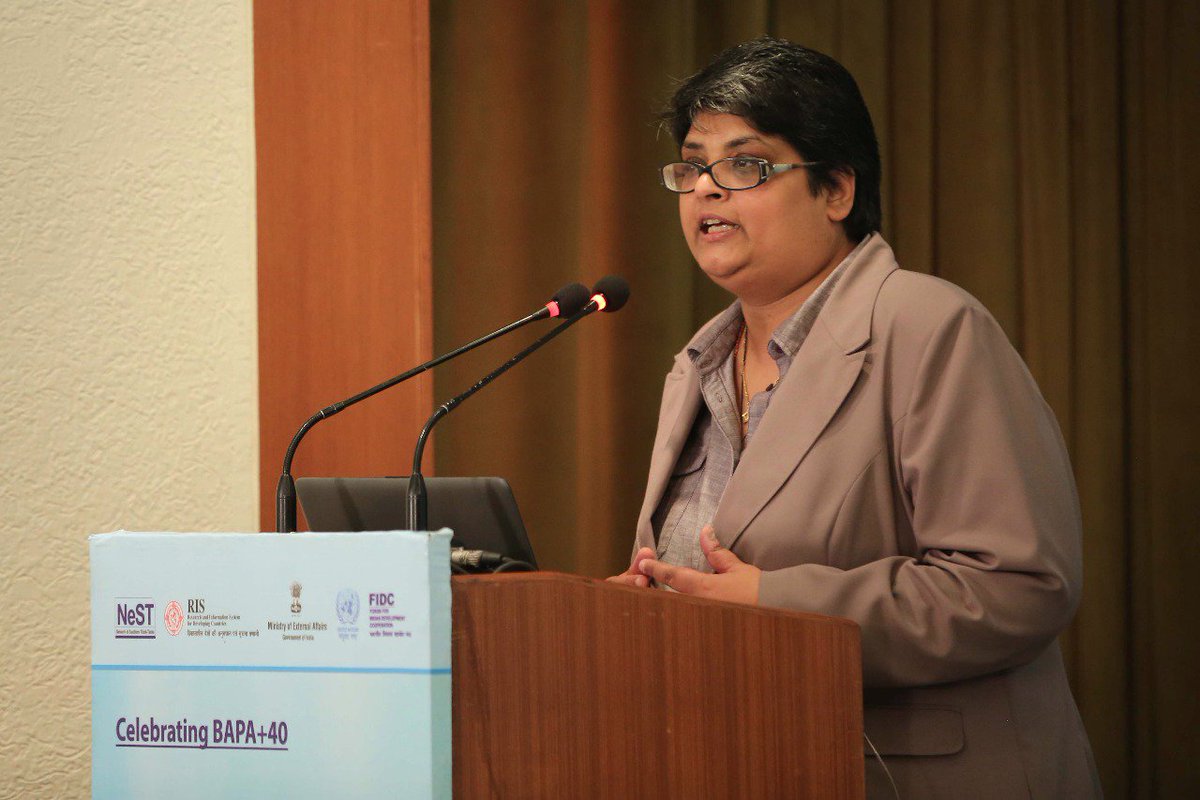Six more nations have been asked to join as new members, as BRICS bloc of top emerging economies take significant step towards expanding its reach and influence to fight the United States dollar dominance globally .
Argentina, Egypt, Ethiopia, Iran, Saudi Arabia, and the United Arab Emirates have been asked to become full members on January 1, 2020. The group, which was founded in 2009 by Brazil, Russia, India, and China, initially admitted South Africa in 2010.
It now claims to be attempting to build a stronger coalition of developing nations capable of better putting the interests of the Global South on the global agenda. More than 40 countries indicated interest in joining BRICS before the commencement of its annual meeting in South Africa this week, and 23 formally applied.
“We appreciate the considerable interest shown by countries of the Global South in membership in BRICS,” the group stated in the Johannesburg II declaration, which was agreed on the closing day of the summit on Thursday.
It stated that the six were chosen after “BRICS countries reached consensus on the guiding principles, standards, criteria, and procedures of the BRICS expansion process” but did not go into further detail about the particular criteria.
“It is difficult to find commonalities among the six countries invited to join BRICS other than the fact that they are all significant states in their respective regions,” Danny Bradlow, a professor at the University of Pretoria’s Centre for the Advancement of Scholarship, told Al Jazeera.
According to Sanusha Naidu, a senior research scholar at the Institute for Global Dialogue, a South African think tank focusing on China and Africa, “you could argue it’s very Middle East centric” with the inclusion of Saudi Arabia, Iran, the United Arab Emirates, and Egypt.
“This has geo-economic, geostrategic, and geopolitical implications,” Naidu claimed, adding that the latest additions will force certain BRICS states to reconsider their Middle East policy, as well as China and India to strengthen their existing policies.
China recently facilitated the re-establishment of ties between Saudi Arabia and Iran, a function normally played by a country such as the United States.
India just secured a deal with the UAE to trade in Indian rupees and Emirati dirhams rather than US dollars.
Importantly, Naidu claimed, the expansion list is “very energy centric,” adding that after the announcement, some experts at the event joked about whether they should “call it BRICS plus OPEC?”
Saudi Arabia and Iran are among the new members asked to join the BRICS alliance.
The bloc may have considered the pricing of energy items and how their countries might lower their liability and risk in terms of the cost of oil when picking new members, she said.
“With the exception of Russia, all of the [core BRICS countries] are non-energy producing countries.” “They need to be able to function economically, but they don’t want to be caught up in the secondary collateral damage of sanctions,” she stated.
The use of “unilateral sanctions” against countries, as well as the US dollar’s continued dominance in global trade, has been openly criticised by BRICS.
According to Karin Costa Vasquez, a non-resident senior scholar at the Centre for China and Globalisation in Beijing, the development “opens up new avenues for trade for the Brics Bloc.”
One of the goals of the proposed expansion is to “enable BRICS nations to trade more easily with one another using local currencies.” Vasquez also stated
“This shift could increase the potential for using currencies other than the US dollar, particularly by creating a network of countries that enhances the utility of their respective currencies.”
According to analysts, one of the countries that could gain from a trading regime other than dollar domination is Iran.
“Iran will clearly benefit the most,” said Na’eem Jeenah, a senior researcher at the Mapungupwe Institute for Strategic Reflection in South Africa.
He stated that its membership “highlights the fact that it is not as politically isolated as the US desires.” Inclusion may also provide a “economic lifeline” through increased bilateral trade.
“Members would begin trading in their respective currencies.” This would be fantastic for Iran,” he remarked.
Argentina, according to Jeenah, was a “shoe-in” due to the support of Brazil, China, and India. Analysts expected Algeria, which has oil reserves, or Nigeria, the continent’s most populated country and top economy, to be among the African governments included.
Cheta Nwanze, a partner at SBM Intelligence, a West African geopolitical advice firm, said of Nigeria’s exclusion, “I think it’s an indictment of our foreign policy, or lack thereof.” Our foreign policy used to be quite pan-African, but that has changed.”
“With the possible exception of Nigeria and Kenya, it is clear that the majority of the rest of Africa is shifting away from the West and towards the East.” “We are staying in the Western camp without saying so explicitly, and more importantly, without benefiting from it,” he told Al Jazeera.
Ethiopia’s inclusion, according to Jeenah, “makes sense in those terms” because it has one of the fastest-growing economies and also houses the African Union’s headquarters.
Egypt, Saudi Arabia, and the United Arab Emirates are similar to India and, to a lesser extent, South Africa in that they “have one foot in BRICS and another foot in the West.” Jeenah stated.
However, Saudi Arabia, in particular, is “positioning” itself in such a way that it is not solely in the American camp.
“They have other options now and are going to leverage these options,” he said, referring to the China-brokered accord to normalise relations with Iran.
Wang Yi of China, Ali Shamkhani of Iran, and Musaad bin Mohammed Al Aiban of Saudi Arabia pose for photos during a meeting in Beijing, China on March 10, 2023.
Analysts have remained divided on what a larger BRICS means for the West and the current global order.
“The grouping now accounts for a larger proportion of the world’s population and economy.” “However, this only means that the group has the potential to be a powerful voice for reform of global governance arrangements as well as a powerful actor in these arrangements,” Bradlow explained.
“Whether it becomes such a voice will depend on whether the expanded group is more effective than the BRICS in forging agreements on how global governance arrangements should be reformed and how they can better serve the interests of the entire Global South.”
“Having Iran in the BRICS sends a massive powerful message to the G7, to the Global North, to Washington,” Naidu said.
“‘You can have a problem with them, we’ll keep them here,’ it says.” Also, it says, ‘Your issues are not our worries.'”
She noted that South Africa, which has close links to the United States, may have to deal with the “fallout” and negotiate some of these problems. She also asked if the country could take benefit of its membership in the Brics Bloc.
“Yes, they don’t have the economic muscle to do what they want to do, but they do have the strategic muscle to say, ‘I have the BRICS behind me now, I have a wall of BRICS.'”
“We must be careful not to overestimate the significance of this expansion development,” Jeenah remarked. It surely does not turn BRICS into a front for the Global South. It’s only an 11-person club.”
However, he emphasised that, thus far, BRICS has not attempted to serve as a political forum, but this may change.
“What’s scarier [for the West] than the six chosen is that 40 people expressed interest in joining,” he said. “The BRICS are expanding gradually… So, where will it be in 30 years?
“While de-dollarisation is not on the horizon, the fact that in a few years, two of the world’s three largest economies could be trading with each other within the [BRICS] bloc without the US dollar would be cause for concern.”










